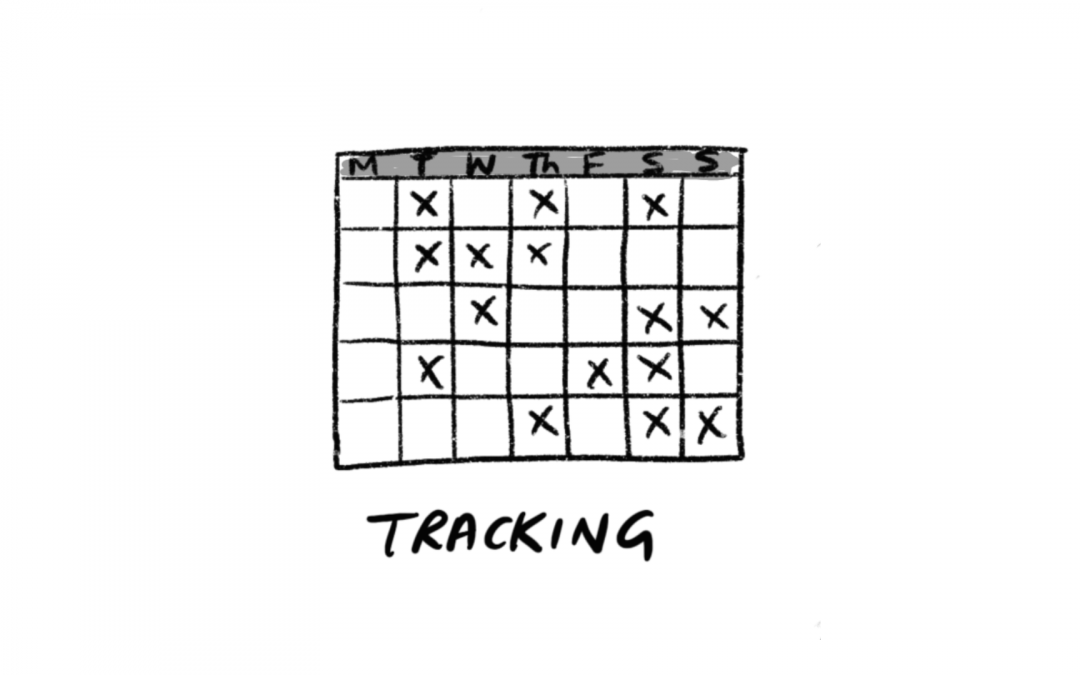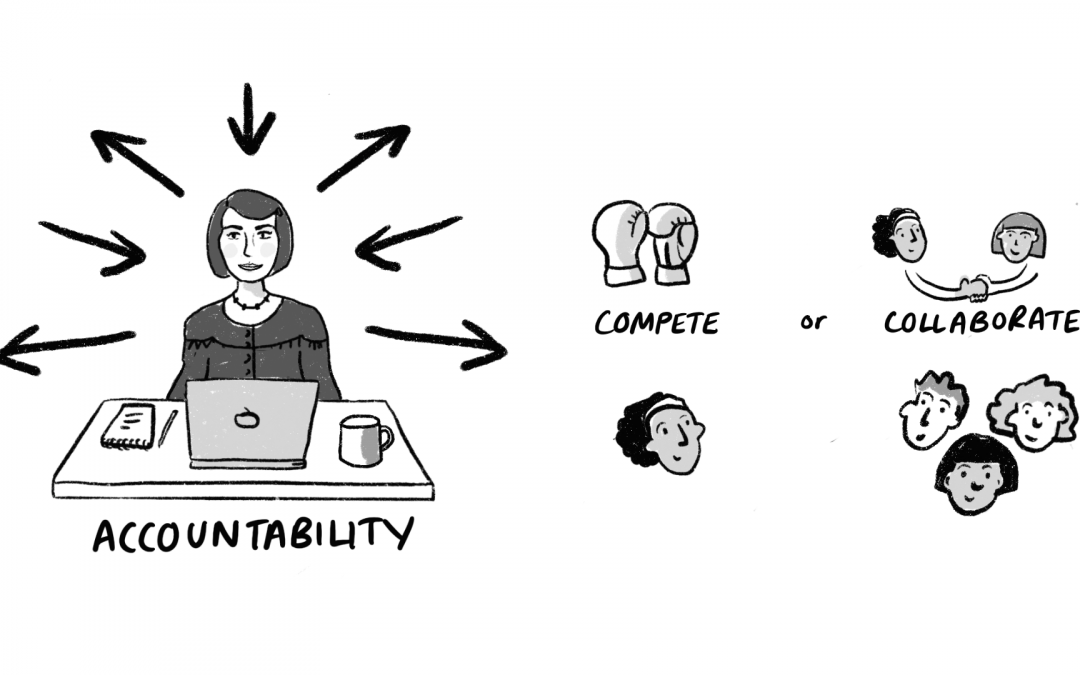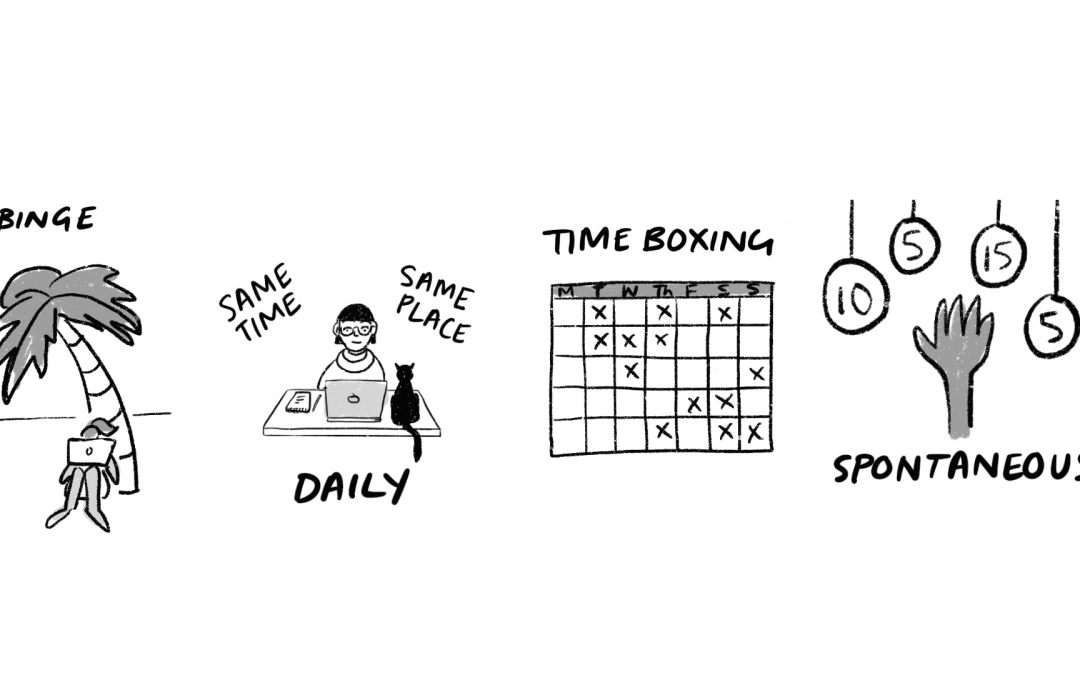
A guide to tracking your writing – why noticing how you write will transform your practice
Tracking can be a powerful tool for behaviour change. It helps you build writing habits and routines, improve your productivity, and make you feel more positive about writing - which means you'll be more likely to continue. Get started with this complete guide to...

Why ‘enjoyment’ is the only New Year’s writing resolution you need (and the 3 steps to achieving it)
Some people think pleasure is peripheral to the writing process, something nice to have but not essential. We profoundly disagree. In our work with writers of all kinds - from professors and business gurus to novelists and creatives - we've found that it’s the people...

The complete guide to writing accountability – hold yourself to account and use others to help you achieve your writing goals
Writing accountability comes in all shapes and sizes. Whether you like to keep your projects secret or enlist others to support you, we’ve got you covered in this complete guide to writing accountability. Find out why it matters, get inspired by the ingenious methods...

8 things to try if you’re blocked from writing because you have too much time
Having lots of time to write can be just as damaging to your productivity as having too little – sometimes more so. When you have all the time in the world to write but still struggle, that’s when guilt, self-doubt and procrastination can spiral. The key is to put...

How to stop procrastinating for good: a guide for writers
Some writers assume that procrastinating means engaging in frivolous activity - but that’s not true. Work can be procrastination, research can be procrastination, planning can be procrastination. It has many different forms and the less visible it is, the more...

10 lessons to boost your productivity from a writing coach
As a writing coach, I sometimes find myself giving different people the same productivity lessons again and again on our training courses. Sometimes these tips seem counter-intuitive. Over the years, I've grown accustomed to the raised eyebrows they can generate. But...

Finding time to write: the spontaneous writer
Spontaneous writers grab any opportunity to write. With busy or unpredictable schedules, they need to be prepared to write at the drop of a hat. Find out how to become a master of spontaneous writing and keep alert to the pitfalls of this approach to writing time. The...

Finding time to write: the binge writer
Deep workers book long session to binge write. They might not write very regularly but they can be extremely productive if they plan ahead. Find out how to avoid the pitfalls of binge writing. Create a deep work routine and make the most of this approach to finding...

Finding time to write: the time boxer
Time boxers schedule writing sessions across a week or two. These super-organised writers take a pragmatic approach to prioritising writing and making it happen. Find out how to find and make time in your busy schedule with our traffic light system. Learn the...

Finding time to write: create a daily writing routine
Daily doers write every day. Researchers have found there are many benefits to having a daily writing routine - yet there are also downsides. Find out how to trigger a regular writing habit and make the most of this approach to finding writing time in your busy life....

8 types of negative thinking that hold you back as a writer and how to overcome them
When you experience negative thinking about your writing, you're really just facing your own biased and ungrounded assumptions about your abilities. Whilst there’s nothing wrong with holding yourself and your writing to high standards, having negative thoughts can...

How to write a book in 100 days
Getting my book deal was the achievement of a life-long goal. Once the ink had dried on the publisher’s contract, reality set in. I actually had to write and deliver a book - 50,000 as yet unwritten words - in 100 days. There was no time to waste - I needed a plan....
